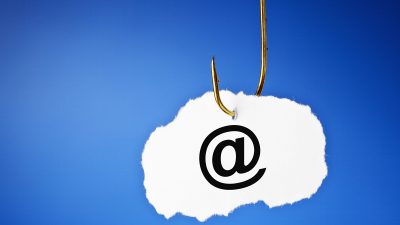What to do after responding to a phishing email
By John Merrey

If you have access to any of the email platforms on the internet, chances are you have received a suspicious email from a cyber attacker. These are referred to as phishing emails, which can look something like this:
Dear customer,
We regret to inform you that your account has been restricted. To continue using our service please click on the link and update your login information.
Cyber attackers typically pretend to be part of a platform with which you have an account. An obvious piece of advice is to never respond to the email, click on links, or give out personal information. However, some people have trouble identifying a phishing email, especially when attackers are always trying to find new ways to trick you.
Let’s discuss how to identify a phishing email and what to do if you respond to one.
How to identify a phishing email
The most important way to avoid being tricked is being able to identify a phishing email. Sometimes, these emails are very easy to identify, especially when there are grammatical errors and different fonts.
Large platforms such as PayPal tend to have a lot of issues when it comes to cyber attackers phishing on their behalf. However, these platforms typically have a specific format they follow and have a lower chance of having grammatical errors, so if you see misspelled words and missing punctuation, chances are it’s a phishing email.
Other signs to look for include:
- Strange or misspelled email address
- Suspicious links or attachments
- A sense of urgency for you to respond or click a link
- Personal information is being asked for, including bank account or card info
What to do if you fall victim to a phishing email
The chances of someone out there responding to a phishing email are unfortunately inevitable. So, let’s say you receive an email requesting your Instagram information, or else your account will be suspended, and you respond to it. What should you do?
Follow these steps:
- Change your account passwords
- Report the incident to your business and IT provider
- Be more aware and cautious of emails you receive
- Implement strategies to avoid future attacks
Not everyone is aware or cautious enough to pick out phishing emails, but we can all educate ourselves and be more aware of this issue, which is one of the best ways to combat these emails. If you find yourself a victim of a phishing email, take necessary precautions to protect your assets as well as others’.
